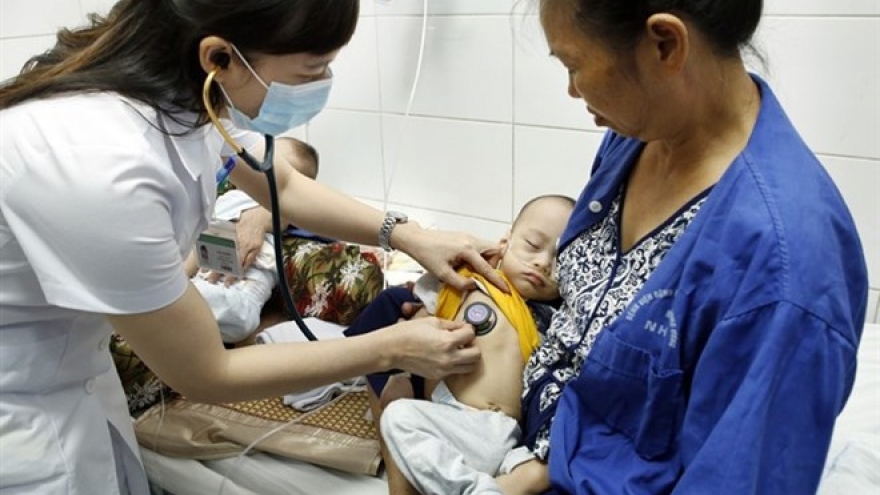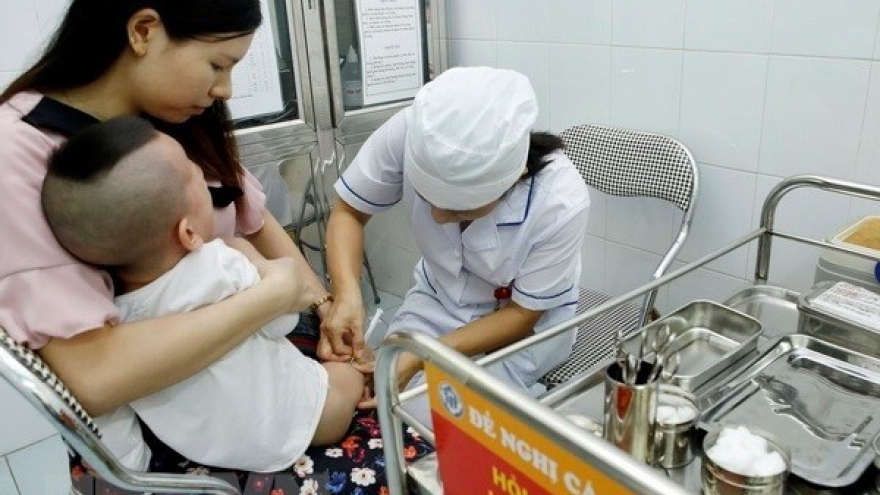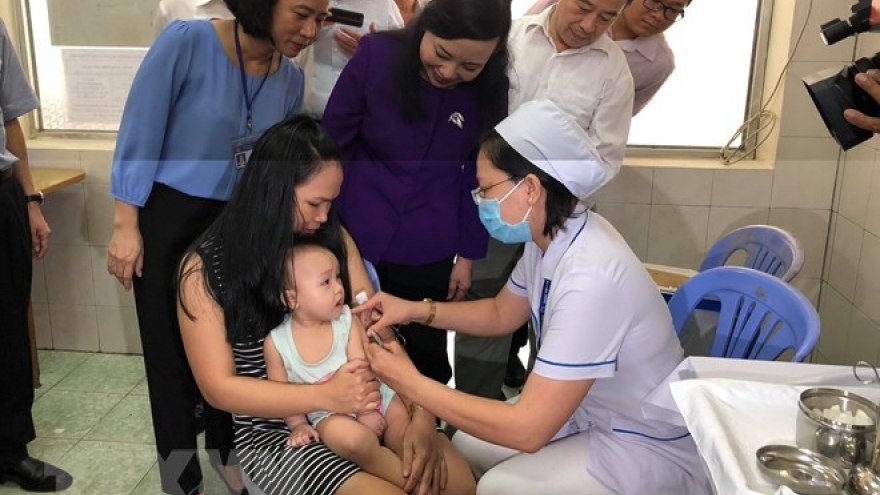More measles cases reported in HCM City
Parents have delayed taking their nine-month-old children to healthcare facilities for measles vaccinations because of insufficient counselling from hospitals and doctors at vaccination centres.
 |
| Tran Dac Phu, head of the Department of Preventive Medicine, examines a patient with measles at the Hospital for Tropical Diseases in HCM City. |
The first vaccine shot against measles is supposed to take place at nine months old and the second shot at 18 months old under the national immunisation guidelines of the Ministry of Health.
Le Hong Nga of the Preventive Medicine Centre said that many hospitals and vaccination centres were also providing two-in-one vaccines that immunise against both measles and rubella. The first vaccine is scheduled at 12 months old and the second shot three to five years later, under the manufacturers’ guidelines.
Dr Nguyen Thi Hong Bien, deputy head of the District 8 Health Centre, however, said that “many parents don’t trust what we say about the two-in-one vaccine”.
“They are told they must get the second shot three or five years later after the shot at 12 months old by doctors at hospitals and vaccination centres. But they don’t accept this and will not take their children to health stations in wards and communes for a vaccine.”
The Preventive Medicine Centre is providing the two-in-one vaccine to children born from 2014 to 2017, following the Ministry of Health’s national campaign on vaccination, which started in early January.
Staff at health centres and stations in districts, wards and communes are finding it difficult to persuade parents to get this two-in-one vaccine.
“Ninety-five percent of measles patients have not been vaccinated,” Nga said.
The city reported 1,989 cases of measles since early 2018, with the number of patients increasing in September. Nearly 300 to 400 patients have been hospitalised each week since September.
Of the 1,989 patients, many of them were children. Nearly 60 percent were under five years old.
“Children aged six to 10 months had measles” because immunisation from the mother was low, Nga said.
She warned that women should get vaccinated against measles three months before becoming pregnant.
The Hospital for Tropical Diseases has one of the highest numbers of patients with measles in the city.
Since the beginning of this year, at least 27 percent of 645 in-patients with measles have suffered complications and had to use mechanical ventilators.
Paediatrics Hospital No 1 is treating 30 children with measles who are in serious condition.
Tran Dac Phu, Director of the Department of Preventive Medicine, said that measles could spread until June if immunisation coverage was not increased.
Local authorities should work with health staff to compile a list of children who are at the age to get vaccinated and encourage their parents to take them to local health stations or get the vaccine at their kindergartens, Phu said.
Dr Nguyen Tri Dung, head of the HCM City Preventive Medicine Centre, said the city would continue the campaign to raise immunisation coverage to more than 95 percent.
In February, the centre will try to identify children who have not been vaccinated and persuade their parents to accept vaccination, Dung said.
The centre also plans to give the vaccine to children under five years old who are being treated for other diseases at three paediatrics hospitals and the Hospital for Tropical Diseases, he added. The pilot programme will be expanded to other hospitals with paediatrics departments in the city.
Although only 5 percent of children have not received vaccines in the city, the risk of transmission exists.
Dr Phan Trong Lan, Director of the HCM City Pasteur Institute, said the risk of spread from HCM City to other provinces during the Tet holiday is high because many people in the city will return to their hometowns.
Phu asked hospitals to carry out preventive methods to reduce transmission to other patients.



